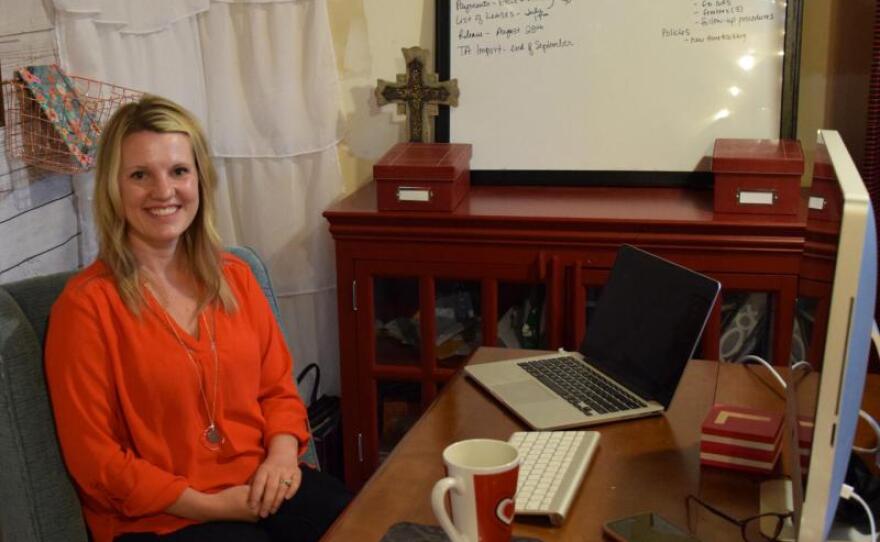When Anne Schons describes her career, she uses the word "imagine" a lot.
In college, Schons studied music education. "I had always imagined myself being a music teacher," Schons explained. "When my husband joined the Army, and I spent our first duty station getting a post-baccalaureate teaching certification for Texas."
But Schons and her husband didn’t stay in Texas. He was transferred to another base, and her career as a teacher didn’t take off. Schons tried other jobs: she even joined the Army herself for awhile. She has a masters in educational technology, and she’s on the job market in Watertown.
But at 30, with two young daughters and a husband who’s still in the military, it’s been a challenge to establish a civilian career.
"I’m kind of trying to imagine maybe becoming a human resources training and developer so I can utilize my education background," Shons said, "but I don’t have a lot of versatility in what I can do depending on what location we end up in."
Schons’ husband will be transferred to Fort Lee, Virginia this winter. And that’s left her in a tough spot: should she get a short-term job, or should she wait another 6 months until they move?
Kathy Roth-Douquet, CEO of Blue Star Families, a military family advocacy group, said Schon’s story is not uncommon among military spouses, the vast majority of whom are women.
"You don’t have those connections that help you find jobs, you’re at the bottom of the list for child care, you have all these structural problems that are impeding you from getting going," Roth-Douquet said.
According to the RAND Corporation, military spouses are about 1.5 times more likely to be unemployed than their civilian counterparts. And spouses that do have jobs are often underemployed.
Roth-Douquet said it cost the U.S. economy approximately a billion dollars a year in lost wages and spending. And it places a big burden on military families.
"We’re asking people to sacrifice twice. We’re asking people to sacrifice by risking their lives, and we’re asking them to sacrifice by having half the household income their neighbor has. And that’s too much to ask."
Entrepreneur and Watertown military spouse Liza Rodewald was already working from home as a software developer when her husband joined the Army. When they moved to Fort Campbell, Kentucky, for her husband's job, she noticed something about the women in her new neighborhood:
"They were highly educated," Rodewald recalled. "We had architects and accountants, and they were struggling with employment because they had moved so many times."
So when a friend asked her if she wanted to help start a military spouse job site, she jumped at the chance. Together they co-founded Hire Mad Skills, a company that places military spouses in remote jobs so they can work from home and keep their jobs when they move.
"You know as an employer if you’re trying to hire somebody you need somebody who can roll with it, who can jump right in, and military spouses by default are just like that because they’re thrown into situations," Rodewald said.
This past year, Hire Mad Skills placed 75 military spouses in remote jobs in fields like IT, sales, and marketing.
Rodewald said it’s a start. But both she and Bluestar Families CEO Kathy Roth-Douquet said really fixing the military spouse employment issue requires policy change, like making it easier to transfer professional licenses from state to state.
That won’t come fast enough for people like Anne Schons.
For now, Schons is enrolled in a human resources training program at Fort Drum. She’s put her resume on Hire Mad Skills and beefed up her LinkedIn profile. And she’s hoping for the best.
"I’m keeping myself really open, but I’m also trying to develop my soft skills as much as I can to be ready when the opportunity comes," said Schons.
She hopes that opportunity that will come soon, maybe as a remote job. That way another military move won’t stop her from building her career.





